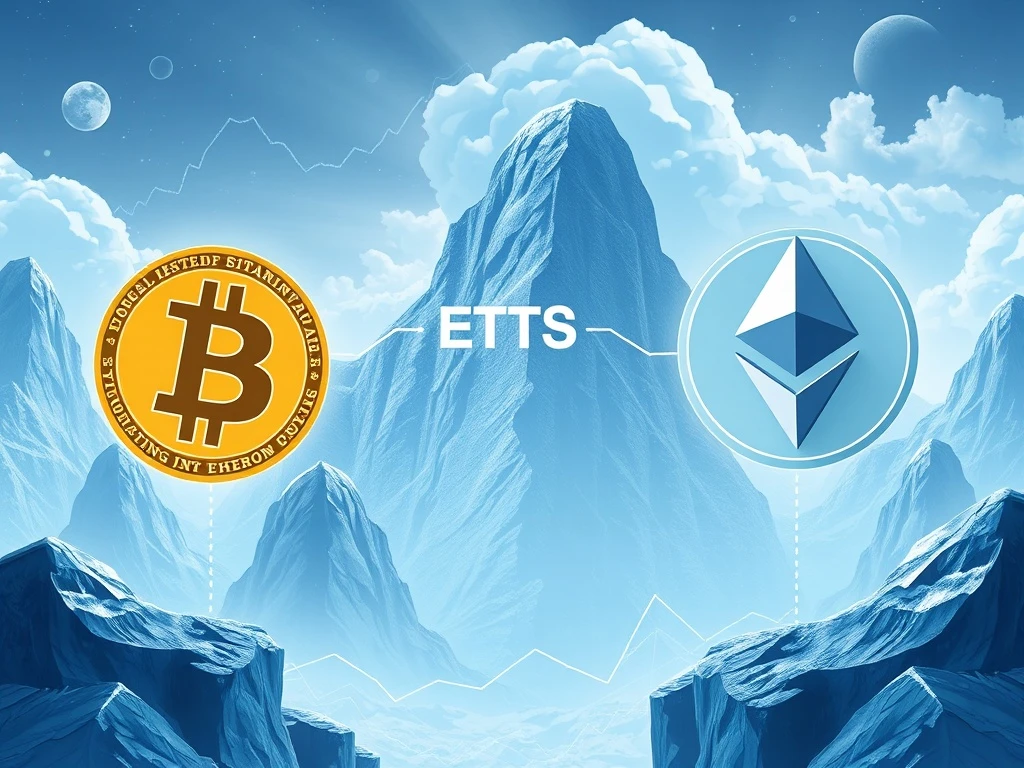Bitcoin ETFs and Ethereum ETFs: SEC’s Game-Changing Approval Boosts Market Efficiency and Institutional Adoption

The U.S. Securities and Exchange Commission (SEC) has made a groundbreaking decision that could reshape the cryptocurrency market. By finalizing the in-kind creation and redemption mechanism for Bitcoin ETFs and Ethereum ETFs, the SEC is paving the way for enhanced market efficiency and broader institutional adoption. This move aligns crypto ETFs with traditional financial products, making them more accessible and cost-effective for investors.
What Does the SEC’s Approval Mean for Bitcoin ETFs and Ethereum ETFs?
The SEC’s decision allows authorized participants to exchange ETF shares directly for Bitcoin or Ethereum, rather than using cash. This in-kind mechanism offers several key benefits:
- Reduced transaction costs by minimizing cash conversions
- Lower capital gains taxes for investors
- Improved liquidity and tighter tracking of net asset value
- Simplified workflows for institutional investors
How Will This Boost Institutional Adoption of Cryptocurrencies?
The new policy removes significant barriers for institutional investors considering crypto ETFs:
| Previous Challenge | New Solution |
|---|---|
| Cash-only redemptions created tax inefficiencies | In-kind transfers reduce taxable events |
| Operational complexity deterred large investors | Streamlined processes mirror traditional ETFs |
| Price discrepancies between ETFs and underlying assets | Tighter NAV tracking through direct crypto exchanges |
Which Major Players Are Benefiting From This SEC Decision?
The approval applies to all existing Bitcoin and Ethereum ETFs, including offerings from:
- BlackRock
- Fidelity
- Ark Invest
- VanEck
Major exchanges like Nasdaq, NYSE Arca, and Cboe BZX have received accelerated approvals to implement this new model.
What Does This Mean for Future Crypto ETF Developments?
Industry experts predict this decision will influence future altcoin ETF filings in several ways:
- New ETFs will likely incorporate in-kind mechanisms from inception
- The SEC’s approach signals growing acceptance of crypto in traditional finance
- Market structures may evolve faster to accommodate crypto assets
- Investor confidence in crypto products should strengthen
Conclusion: A Watershed Moment for Crypto Markets
The SEC’s approval of in-kind mechanisms for Bitcoin ETFs and Ethereum ETFs represents a significant milestone in cryptocurrency adoption. By addressing long-standing inefficiencies and aligning crypto products with traditional financial standards, this decision enhances market efficiency while lowering barriers for institutional participation. As the crypto market continues to mature, such regulatory advancements will likely accelerate mainstream acceptance and innovation in digital asset investment products.
Frequently Asked Questions
What is an in-kind creation and redemption mechanism?
In-kind mechanisms allow authorized participants to exchange ETF shares directly for the underlying assets (in this case, Bitcoin or Ethereum) rather than using cash transactions.
How does this SEC decision benefit individual investors?
Individual investors benefit from reduced costs, better tax efficiency, and improved price tracking of ETF shares to the actual cryptocurrency values.
Will this make Bitcoin and Ethereum ETFs more expensive?
No, the in-kind mechanism typically reduces costs for ETF providers, which may translate to lower expense ratios for investors.
Does this approval mean the SEC is becoming more crypto-friendly?
While not necessarily crypto-friendly, the decision shows the SEC’s recognition of crypto’s growing role in financial markets and willingness to adapt regulations accordingly.
Can other cryptocurrencies now expect similar ETF approvals?
While this sets a positive precedent, each cryptocurrency ETF application will still be evaluated on its own merits by the SEC.
How quickly will these changes take effect?
The major exchanges have received accelerated approvals, so changes should be implemented relatively quickly, though exact timelines may vary by provider.










